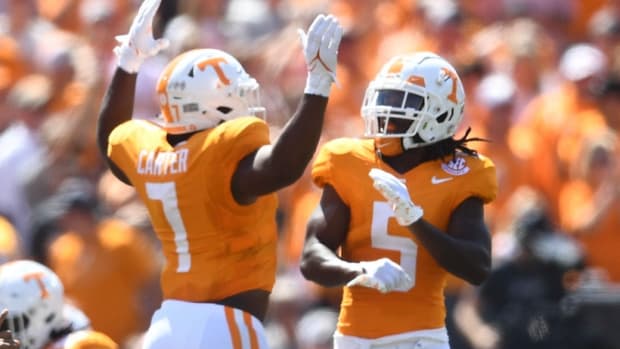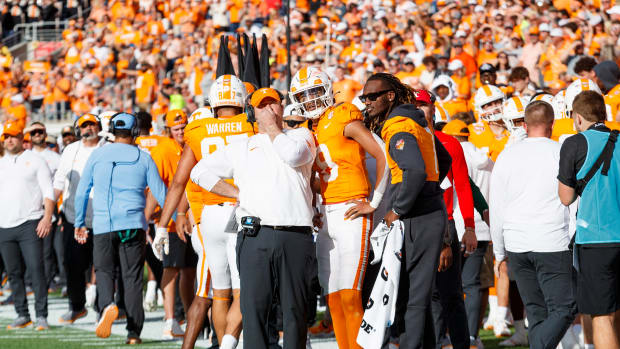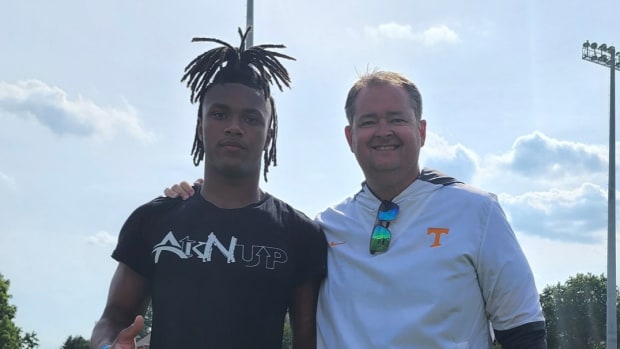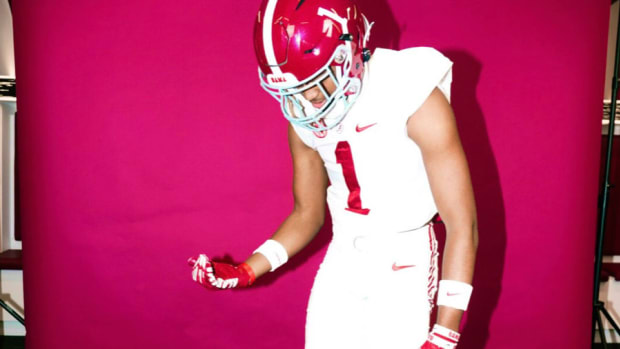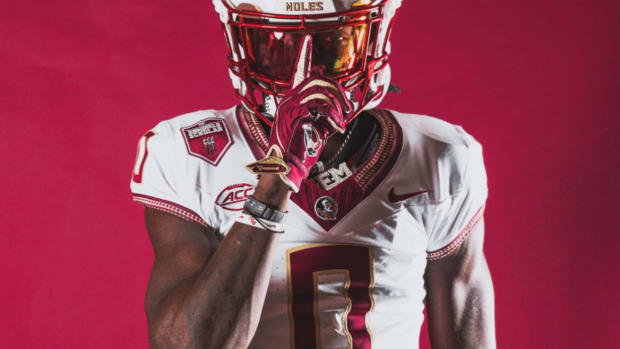Coach's Corner: Chaney's Offense Poised for Vertical Attack in 2020
The biggest coaching change that Tennessee made in the lead up to the 2019 season was the hiring of Jim Chaney to come in as the offensive coordinator for the Vols. Chaney is widely respected throughout college football as one of the best play-callers and developers of quarterbacks in the nation. The Vols came into 2019 with a significant amount of returning offensive talent, and the expectations for that side of the ball were high. The Vols struggled early in the season, hampered by bad quarterback play, multiple injuries at that position, and on an offensive starting lineup that was in a bit of constant upheaval. However, once the offensive starters settled into their roles and positions, the Tennessee offense rounded into more of what was expected pre-season. Now the questions surrounding the Tennessee offense for 2020 center on how far the unit can come forward.
The Facts
Jim Chaney has been coaching quarterbacks and running offenses in college football for a long time. In 1997 he began working under Joe Tiller at Purdue. Chaney and Tiller famously created what became known as, “Basketball on Grass.” The Boilermakers spread the field and threw the ball all over the stadium. Tiller and Chaney learned to out scheme their opponents, and create situations that played to the strengths of their players. They also put a premium on quarterback play and development. From 1997 to 2005 at Purdue, Chaney coached three quarterbacks that went on to play in the NFL in Curtis Painter, Kyle Orton, and most famously, Drew Brees. After a few seasons in the NFL where he worked under Mike Martz with the St. Louis Rams and their, “Greatest Show on Turf,” Chaney came back to college and started his first stint at Tennessee. Chaney helmed the highest-scoring offense in program history in his first tenure as the Vols' offensive coordinator, and three quarterbacks that he coached in Knoxville, Matt Simms, Justin Worley, and Tyler Bray all made NFL rosters after leaving Tennessee.
In Tiller, Chaney had worked under an offensive mind built around the wide-open passing game, which was an innovation at the time. During his time in the NFL, Mike Martz and the Rams were running very similar concepts to what he and Tiller had developed at Purdue. When he arrived at Tennessee it was under Lane Kiffin at first, and the product Tennessee put on the field was more of a pro-style offense, but had elements of Chaney's spread background. The spread elements became more pronounced after Kiffin left for USC, and Chaney was given more control of the offense under Derek Dooley. It was at Arkansas that Chaney faced his first, truly different philosophy. Chaney was hired in 2013 by first-year Arkansas coach Bret Bielema. Bielema had built Wisconsin into a power in the Big Ten based on a power running game that the entire offense was built around, and he intended to do the same at Arkansas. While this couldn't have been further from Chaney's air raid roots, he adjusted his system, learned from Bielema, and had the Hogs bowl eligible in 2014, with another quarterback, Brandon Allen, bound for the NFL.
Chaney moved on from Arkansas to Pittsburgh, where be served as the offensive coordinator for the 2015 season. In his season with the Panthers, Chaney worked with another run-first head coach in Pat Narduzzi, but by now Chaney had evolved with the situations he had been placed in. He had developed a system that could utilize the air raid from his roots, but could also work in a run-heavy, pro-style offense very friendly to quarterbacks. In his season at Pitt, Chaney also saw a familiar face from his time at Tennessee in Nathan Peterman. Chaney has recruited Peterman to Tennessee, and Peterman had redshirted in the 2012 season. After struggling in limited opportunities under Butch Jones, Peterman transferred to Pitt, reuniting with Chaney. Peterman won the starting job for the Panthers and went on to earn All-ACC honors in 2016, before being another Chaney quarterback to be drafted into the NFL.
Kirby Smart managed to hire Chaney away from Pitt in 2016, and Chaney came to work for another run-first minded coach. However, Chaney again adjusted his system to best utilize what he had. Chaney had a stable of elite running backs, and he built the offense around them, but also found ways to get them the ball creatively. He gave his young quarterbacks easy throws to the backs, and found ways to get them the ball in ways defenses weren't expecting, often by having two of his talented backs on the field at the same time. Chaney also utilized the quarterback friendly, pro-style passing attack that he began to develop with his time at Arkansas. He also showed his ability to shift his offense based on his personnel, implementing more quarterback runs when Jake Fromm took over for an injured Jacob Eason in 2017. While Eason transferred to Washington to finish his career, and Fromm left Georgia as a junior, both played under Chaney for two seasons, and both should be drafted later this month in the 2020 NFL Draft.
Strengths
There is a double-digit list of quarterbacks that played for Jim Chaney that made NFL rosters. It is safe to say that quarterback development is a strength, and his reputation for grooming high-level signal-callers is well-earned. Chaney is also an innovative offensive coach that can create an offense that best suits his players and the philosophy of his coach. Since being hired by Jeremy Pruitt, Chaney has used a balanced, pro-style attack that relied heavily on his wide receivers to go make big plays. This was a struggle in 2018 due to poor offensive line play, but the Vols still managed to win games. In 2019, as the offensive line solidified and started looking like one of the strengths of the team, Chaney leaned on them heavily, trusting to his run game to take over and close out games against Mississippi State, Kentucky, Vanderbilt, and Indiana. He also was able to push the ball downfield more despite the struggles at the quarterback position due to ineffectiveness, inexperience, and injury. The way Tennessee won games down the stretch, with multiple quarterbacks injured and playing in games, is something very rarely seen. The role Chaney developed for Jauan Jennings again illustrated his ability to innovate, to get the most out of his players, and to scheme around deficiencies on his offense.
Questions
Jim Chaney has a career that is filled with NFL quarterbacks at every stop along the way. The Tennessee offense should have one of the best offensive lines in the country in 2020. The Vols have a stable of running backs, led by rising sophomore Eric Gray, who looks poised to blossom into a star. Even after losing Jauan Jennings and Marquez Callaway, the Vols return Josh Palmer and a talented if young receiving corps. The question is: Can Jim Chaney do with Jarrett Guarantano what he has done with so many other quarterbacks? The Tennessee defense ended last season in the Top 25 in the nation and looks poised to repeat that accomplishment. The other pieces of the offense are there. The next step for Tennessee is reliant on Chaney getting the kind of quarterback play his offense requires. Can he get it out of Guarantano, or will he move on to one of the younger players to get the job done? How Chaney answers the question of the position he has been most successful with through his career could determine just how much success the Vols have in 2020.

